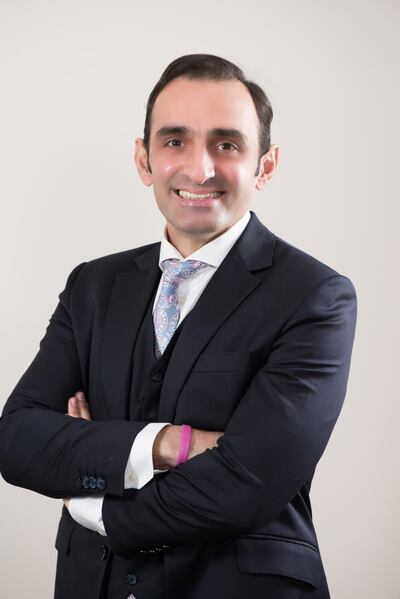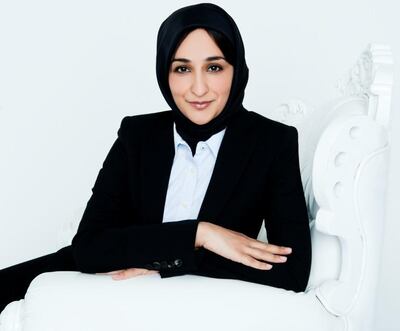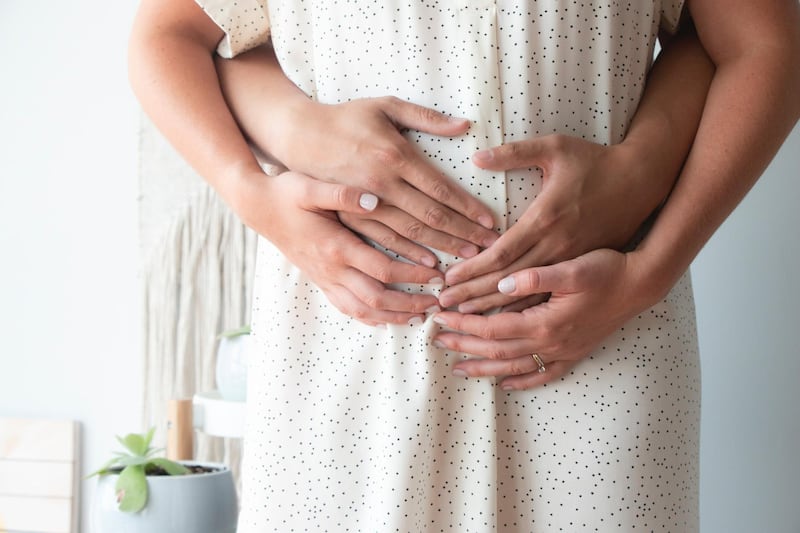Australian actress Rebel Wilson made headlines when she took to Instagram to reveal her trials with conceiving.
"I got some bad news today and didn't have anyone to share it with... but I guess I gotta tell someone," the Pitch Perfect star, 41, wrote. "To all the women out there struggling with fertility, I feel ya. The universe works in mysterious ways and sometimes it all doesn't make sense... but I hope there's light about to shine through all the dark clouds."
"Fertility issues can have a profound biopsychosocial impact on a woman's life," says Dr Tara Wyne, a clinical psychologist atThe LightHouse Arabia in Dubai. "Women often hold assumptions that if and when they want to conceive and start a family they will be able to do so at will. However, according to the [US] National Institute of Child Health and Human Development, infertility affects almost 11 per cent of women and 9 per cent of men [in America]."
While headlines are often made by older celebrity mothers giving birth, such as Halle Berry welcoming her second child at the age of 47 and Rachel Weisz at 48, Dr Dimitrios Kafetzis, medical director at Orchid Fertility in Dubai, says medical advice on fertility and age has changed.
"After the age of 30, female fertility declines rapidly," he says. "We used to say after the age of 35, but we see many women aged 34 to 35 with low ovarian reserves, which reduces their chances for a healthy baby."
We spoke to five experts about what every woman should know about fertility…
1. At what age are women at their most fertile?
"Research has shown that the most fertile stage for women is between the ages of 18 and 29," says Dr Sura Alwan, a specialist in obstetrics and gynaecology at Medcare Women & Children Hospital. "During this time, women have a higher number of good quality eggs which is essential when trying to fall pregnant."

Dr Sindhu Ravishankar, a gynaecologist at Aster Clinic, Discovery Gardens, says: "Every single woman is born with a fixed number of oocytes – follicles that will be releasing the eggs – which is between 500,000 and two million. From birth until puberty, 80 per cent are lost. So a woman enters her reproductive life having lost 80 per cent of her oocytes.
“During her available reproductive duration women will have around 400-500 oocytes to be selected for ovulation. For each oocyte used for ovulation around 1,000 are lost. So, the healthiest of the oocytes will be recruited during the younger age group.”
2. When does female fertility start to decrease?
Modern medicine has allowed women to have children later in life than previous generations. But while fertility in men tends to start dropping off between the ages of 40 and 45, for women, it starts much earlier.
"Fertility decreases relatively until around 30 to 32 then decreases progressively after," says Dr Alwan. "Those aged 25 to 29 will have a 4 per cent to 8 per cent lower fertility rate in comparison with 20 to 24-year-olds. By the age of 30 to 34, it's around 15 per cent to 19 per cent, and from 40 to 45 women, will have more than a 95 per cent lower fertility rate."
3. What can a woman do to prolong or enhance her fertility?

“Smoking and alcohol is really bad for both the eggs and sperms,” says Dr Kafetzis. “There is good evidence that a Mediterranean diet with lots of fruits and vegetables improves fertility. We commonly see couples conceive a baby just by implementing those easy lifestyle changes.”
Dr Shilpa Mhatre, a specialist obstetrician and gynaecologist at Dubai London Clinic, says lifestyle influences are intriguing since they are reversible and therefore can be acted upon. "According to a Harvard study, safe dietary changes can reduce the risk of infertility due to ovulation disorders by 80 per cent," she says.
However, while a woman may enhance her fertility, Dr Ravishankar highlights that “the fertile period for any woman is fixed”.
Alongside the medical reasons for fertility issues are mental health implications.
"When women struggle to get pregnant and begin infertility treatment they experience higher rates of anxiety, depression, emotional distress, trauma and issues of grief and loss," says Dr Wyne. "Typically we have dreams about starting a family and our identity can centre around becoming a mother or parent. Infertility issues can lead to these women feeling their dreams and identity are shattered."
4. Are fertility issues genetic?
"It's important to note that there is no such thing as an infertility gene, and it's impossible to say that any infertile parent passes the disorder down through their DNA," says Dr Mhatre.
The correlation is really weak, says Dr Kafetzis. "Many women come to see us aged 40 to 42 saying their mother conceived over 40. But we live in different times and in a much more polluted environment, with chemicals and pesticides accumulating in the food chain and sadly in our bodies," he says.
5. When should you seek help for fertility issues?

General medical advice is that if the woman is under 30, couples should try to conceive naturally for a year before seeking medical advice. Over 35, and they should seek advice after six months of trying with no success.
Dr Ravishankar says: “When a couple is planning for pregnancy, in the first month they have only a 15 per cent chance to conceive. As the time passes the chances of conception increases from 75 per cent to 85 per cent by the end of 12 months.”
6. What do doctors do when a woman is struggling to conceive?
“Infertility treatment should always be a ‘couple’ approach,” says Dr Ravishankar, “as male factors contribute to 30 per cent causes for infertility.”
Dr Kafetzis adds: “Evaluation for the woman and the couple is easy and quick. An ultrasound evaluation of the uterus and ovaries, an AMH blood test to assess the ovarian reserve, and a tubal patency test.”
7. What are fibroids and what is their effect on fertility?
Fibroids are benign tumours on the uterus. Intramural fibroids grow within the wall of the uterus, while subserosal fibroids grow outside the wall, neither of which usually play a major role in affecting fertility.
"Submucosal fibroids are the ones which are present in the cavity of the uterus, which will be very symptomatic, like heavy bleeding during menstruation associated with dysmenorrhoea and they will interfere with the fertility," says Dr Alwan. "Surgical removal is the best approach."
They are very common, with 40 per cent to 50 per cent of women over 30 having at least one fibroid, says Dr Kafetzis. "We do not know what causes them, although a vitamin D deficiency can be a cause, according to recent studies. They do not cause infertility unless they distort the lining of the uterus or hinder the passage of the sperm towards the egg."
8. What are the most common reasons for fertility issues?

While every woman is different, research has revealed some common reasons women may struggle with fertility – endometriosis, where tissue similar to the lining of the womb starts to grow in other places, such as the ovaries and fallopian tubes; polycystic ovarian syndrome, a condition in which the ovaries produce an abnormal amount of androgens (male sex hormones), and fibroids.
“The main reasons behind infertility these days is polycystic ovarian syndrome, which is an epidemic of infertility, secondary to obesity and a sedentary lifestyle,” says Dr Alwan. “One in every 10 women are affected by it.”
9. What should you consider when thinking about freezing your eggs?
"I truly believe that every woman needs to have a reproductive life plan," says Dr Ravishankar. "Eggs are at their best quality, and research has shown that the highest live birth rates come from eggs that were frozen before a woman turned 35 years old."
Dr Alwan adds: “The best time would be under 25 years of age, the younger the age better the quality of the egg.”
The UAE has recently changed legislation so that single women can freeze and preserve their oocytes for medical reasons, points out Dr Kafetzis. Of course, this is after the clinic requests and gets approval from the Ministry of Health.
10. What are the mental health implications of dealing with fertility issues?
“Often, women report that they feel like they are letting down their husband and families by being unable to conceive,” says Dr Wyne. “They feel pressured by constant questions around when they are going to start a family. Treatments such as IUI and IVF can be gruelling and taxing on a woman’s body and the regime of these infertility treatments and also the pressures women place on themselves to make extreme diet and lifestyle changes can be incredibly stressful and overwhelming.

"We must educate women about how common infertility is and that they are not alone in this issue," she says. "The most essential work is to challenge the idea they can only be mothers by biologically conceiving and carrying a child."
______________________
Read more:
[ Scientists dismiss rumours about Covid-19 vaccines affecting fertility ]
[ Coronavirus leading to ‘baby bust’ as European birth rates plummet ]
[ Baby joy for Sharjah couple after 20 years of struggle ]
______________________






